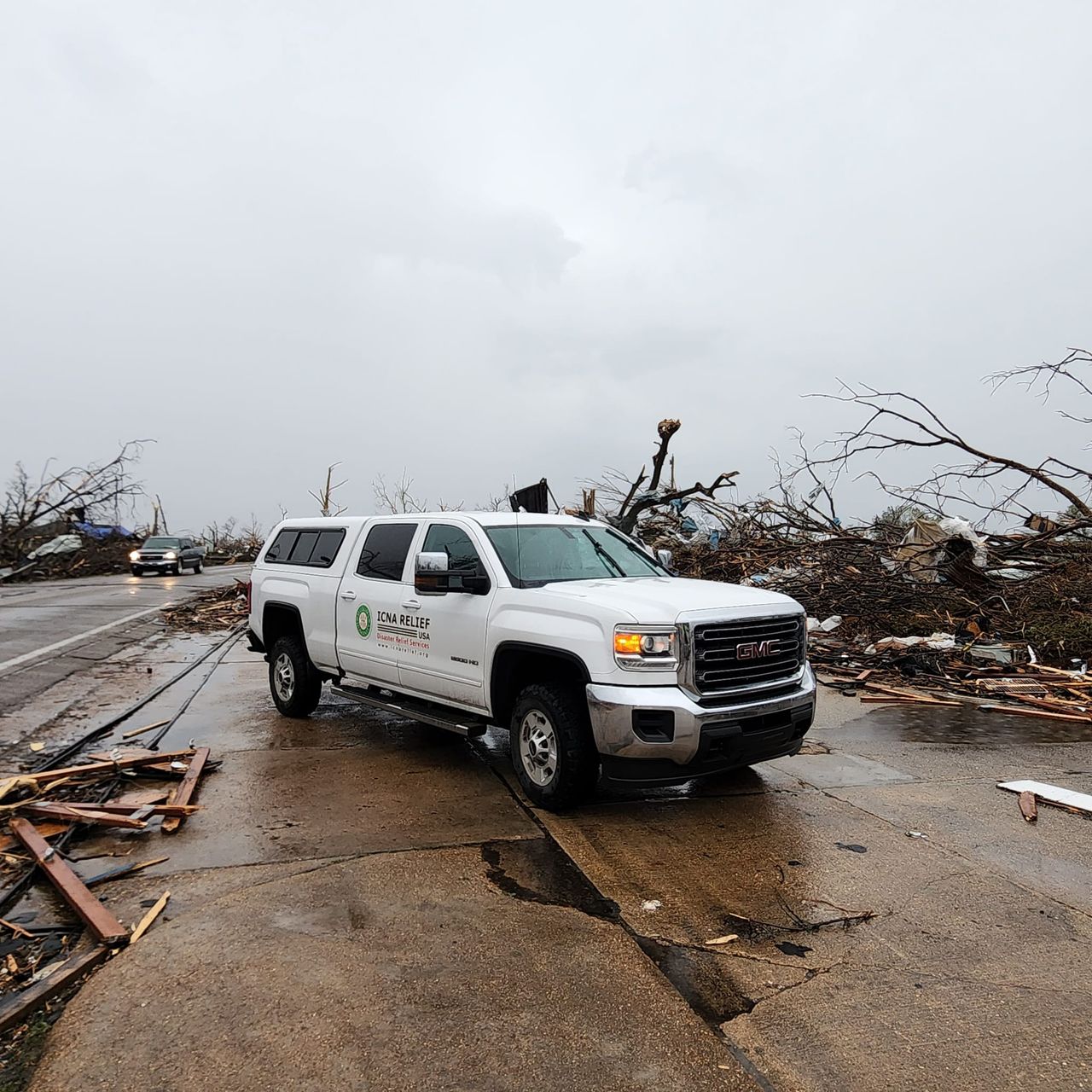ICNA Relief with local and National partners are assessing the damages caused by Hurricane Helene and communicating with local authorities to determine the damages sustained by the storm before sending our staff & volunteers to support the cleanup and recovery efforts.
DonateICNA Relief with local and National partners are assessing the damages caused by Hurricane Helene and communicating with local authorities to determine the damages sustained by the storm before sending our staff & volunteers to support the cleanup and recovery efforts.
Emergency crews rushed Friday to rescue people trapped in flooded homes after Helene roared ashore as a powerful Category 4 hurricane in Florida, generating a massive storm surge and knocking out power to 4 million customers in several states. At least six people were reported dead.
The storm made landfall late Thursday in a sparsely populated region with maximum sustained winds of 140 mph (225 kph) in the rural Big Bend area, home to fishing villages and vacation hideaways where Florida’s Panhandle and peninsula meet. But the damage extended hundreds of miles to the north, with flooding as far away as North Carolina. One Georgia county was almost entirely without power.


Workers clear debris in the aftermath of Hurricane Helene, in Cedar Key, Fla., Friday, Sept. 27, 2024. (AP Photo/Gerald Herbert)
Florida and Georgia ask that volunteers not to self-deploy, as unexpected arrival in affected communities creates an additional burden for first responders. As soon as its safe to do so and we have clearance from local officials you can volunteer with ICNA Relief by registering as a volunteer at https://icnarelief.org/disaster-relief and click volunteer.
Stay safe from post-storm hazards:
⦁ Use a generator safely. Never use a generator inside a home, basement, shed or garage even if doors and windows are open.
⦁ Keep generators outside and far away from your home. Windows, doors and vents could allow carbon monoxide to come indoors. Read both the label on your generator and the owner’s manual and follow the instructions.
⦁ Avoid carbon monoxide poisoning. A generator, grill, camp stove or other gasoline, propane, natural gas or charcoal burning devices should never be used inside a home, garage, basement, crawlspace or any partially enclosed area. These should only be used outdoors and at least 20 feet away from windows.
⦁ Put your health and safety first: be careful in areas with storm damage or flooding. If you evacuated, return only when officials say it is safe to do so. Areas without power may experience heat advisories, which can lead to illness or a threat to life.
⦁ Be aware of heat-related illnesses. Areas without power may experience heat advisories, which can lead to illness or a threat to life. Learn to recognize the signs of heat illness.
⦁ Stay hydrated by drinking plenty of non-alcoholic, non-caffeinated beverages such as water or juice. Keep your pets hydrated by providing plenty of fresh water for your pets and provide a shady area.
⦁ Check on family, friends, and neighbors. Visit adults at risk at least twice a day and closely watch them for signs of heat exhaustion or heat stroke.
⦁ Be careful when cleaning up. Wear protective clothing, including a long-sleeved shirt, long pants, work gloves and sturdy thick-soled shoes. Do not try to remove heavy debris by yourself. Use an appropriate mask if cleaning mold or other debris. People with asthma and other lung conditions and/or immune suppression should not enter buildings with indoor water leaks or mold growth that can be seen or smelled. Children should not take part in disaster cleanup work.
⦁ Avoid downed power or utility lines; they may be live with deadly voltage. Stay far away and report them immediately to your power company.
If you were affected by Hurricane Helene, please call 844-965-1386 and register with Crisis Cleanup. Crisis Cleanup is free, and volunteers from around the country are answering calls from survivors.
Reporting the Crisis Cleanup Hotline does not guarantee assistance. Still, with the collaboration of over 1,800 volunteer organizations, the Crisis Cleanup Hotline has helped more than 80,900 homes and businesses find the helping hands needed to get on the path to recovery.
Emergency calls should be directed to the appropriate local emergency management service.
